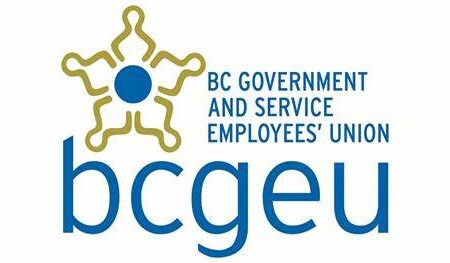Op/Ed: Need "Good" reason to run for council
This Op/Ed was originally shared on a Boundary Facebook group and then sent to us for publication.
Ever wonder what motivates a person to run for municipal council? While some run with the best of intentions, some folks have really bad, or at least really misguided, motives.
Here are my top five bad reasons to run:
1) “People are ready for change!” Newsflash: everyone says that, every election. Sometimes it’s true and sometimes it’s just perception. Often times, when voters go behind that screen, they get a bit scared of change (which is natural) and they go for the known quantity.
That aside, it is my opinion that you just plain need a better reason to run. If the best you can do is “Hey, I’m new!”… I mean, come on. You need to understand budgets, financial statements, water, sewer, garbage, road construction, residential/commercial/industrial development, the role of governance, Inter-municipal relations, by-laws, social and economic development and more.
Have you done your homework on this stuff? Do you have informed positions? Do you have proven leadership experience? Have you ever even sat on a board? As a voter I need to know about what qualifies you for the job and what you stand for. Simply representing “change” is woefully inadequate.
Furthermore, as of the day you are sworn in, you officially cease being “change” and become part of the institution — it’s what you’re signing up for. And if you think that folks are magically going to like you better than the last group, think again. The moment you sit down to the council table, you officially become “them”.
This I promise.
2) “I’m going to clean house!”
Uh, no you’re not.
If you envision yourself walking into the municipal office and taking over operations, firing a bunch of people, and generally sticking your nose into administration’s business, you’re in for a rude awakening. If you want to manage your town or city, apply for the job.
The CAO’s job is management; your role as a Councillor is governance. You don’t get to direct the staff. You are not the bylaw officer, the public works foreman or the HR Director. In fact, you have only one employee – the CAO. And guess what? In many communities, the CAO has an employment contract. You can’t just ditch this guy so you can take over running the place. Even if you get a new guy, you still don’t have the right to manage the municipality, Besides, removal would take a majority vote of Council and would cost the rate payers a whole bunch of money.
You don’t have to like the Town Manager or any of the staff but as a councillor you are legally bound to do things properly (spoiler alert: you’re going to take an oath to that effect this if you get elected).
3) “I’m going to fix the [insert pet peeve such as snow removal/pot holes/bike lanes] situation!” Another very misguided statement that reveals a fundamental lack of understanding of how councils function.
It’s an interesting dichotomy, of course, since candidates run as individuals, but then, to get anything accomplished, you have to work as a team.
The truth of the matter is that you have NO POWER outside of council chambers. Even around the council table, your power extends only to the amount of influence you can leverage during debate, and to your (ONE) vote. I would add: while it’s true that you have no power outside of chambers, you are ALWAYS a representative of the municipality.
You ought never overstep your bounds or ram through your personal agenda. You have a responsibility to consider all matters related to the strategic and fiscal direction of your municipality, and your job, as one member of a team, is to find ways to work together to make wise, informed, responsible decisions for the benefit of all. You are one of a group of decision-makers; no more, no less.
You won’t have the ability to unilaterally wave a magic wand and fix all of the potholes (though people will think you can).
When you make promises you can’t keep, you perpetuate the stereotype of politician. So stop it.
4) “We have to get rid of the current corrupt/secretive/self-serving/incompetent bunch!” Ah, the ever popular “anti” campaign… this tactic, sadly, is often successful. It resonates with coffee klatsches and angry people. The problem is that while it may get you elected, it’s a poor foundation for being an effective mayor or member of council.
The day after you “get rid” of the last bunch, you have to actually do something. Any ideas on what that will be? No? Hmmm, that’s really sad. It’s sad because you have a whole bunch of really important decisions in front of you; stuff that was already in motion, that the previous council that you thought was so useless was working hard to deliberate over and consider that perhaps you should have put some time into understanding. An individual with a personal grievance who runs for office is not only in danger of being an ineffective Councillor; these folks can be downright destructive.
Anybody can tear down; tell me what you are going to build.
5) “I’m going to make fiscal responsibility my number one priority!” This may well be the most irresponsible thing I hear come from the mouths of candidates. If all you want to do is find ways to save people money, then let’s abolish property taxes right now and we can all go home. After all, what’s the point of even having taxes if the only thing we care about is not spending any money?
Yes, fiscal accountability and responsible spending are very, very important. And no one likes paying taxes, me included. But the number one responsibility of the councillor is NOT fiscal responsibility — it is rather to build community infrastructure for future generations.
Shame on you if in 5, 10 or 25 years there is no water or sewer capacity or the roads are falling to pieces or there are insufficient playgrounds and recreation opportunities because you were busy pinching pennies.
Ultimately, there are good councillors and bad councillors in every community. Some mayors and councillors who should never be in office do get elected, and sometimes people are justifiably upset by actions and decisions. I get that. But I have yet to see a municipal council – at least in this province – that is a wholly evil empire. Voters, get informed and vote based on qualification and merit.
Why should you actually run for Council? You should run because you wish to serve your community, to provide good leadership, to plan and build for the future. You should run because you have a contribution to make, ideas to be shared, passion that won’t abate and a commitment to do the right thing no matter what. You should run if you understand that you will have to sacrifice popularity and family time, and that you will have to sometimes make decisions that benefit the community as a whole but don’t benefit you personally. You should run if you want a better future for your grandchildren, and your grandchildren’s grandchildren.
If any of the five terrible reasons I mentioned frame up your election campaign, take heart: it’s not too late. You can withdraw from the race now and free up a seat for people with the right motivation. Or you can reflect on your intentions and set a new course with a commitment to serve your community for the all the right reasons.
Danielle Klooster (Penhold)



























Comments